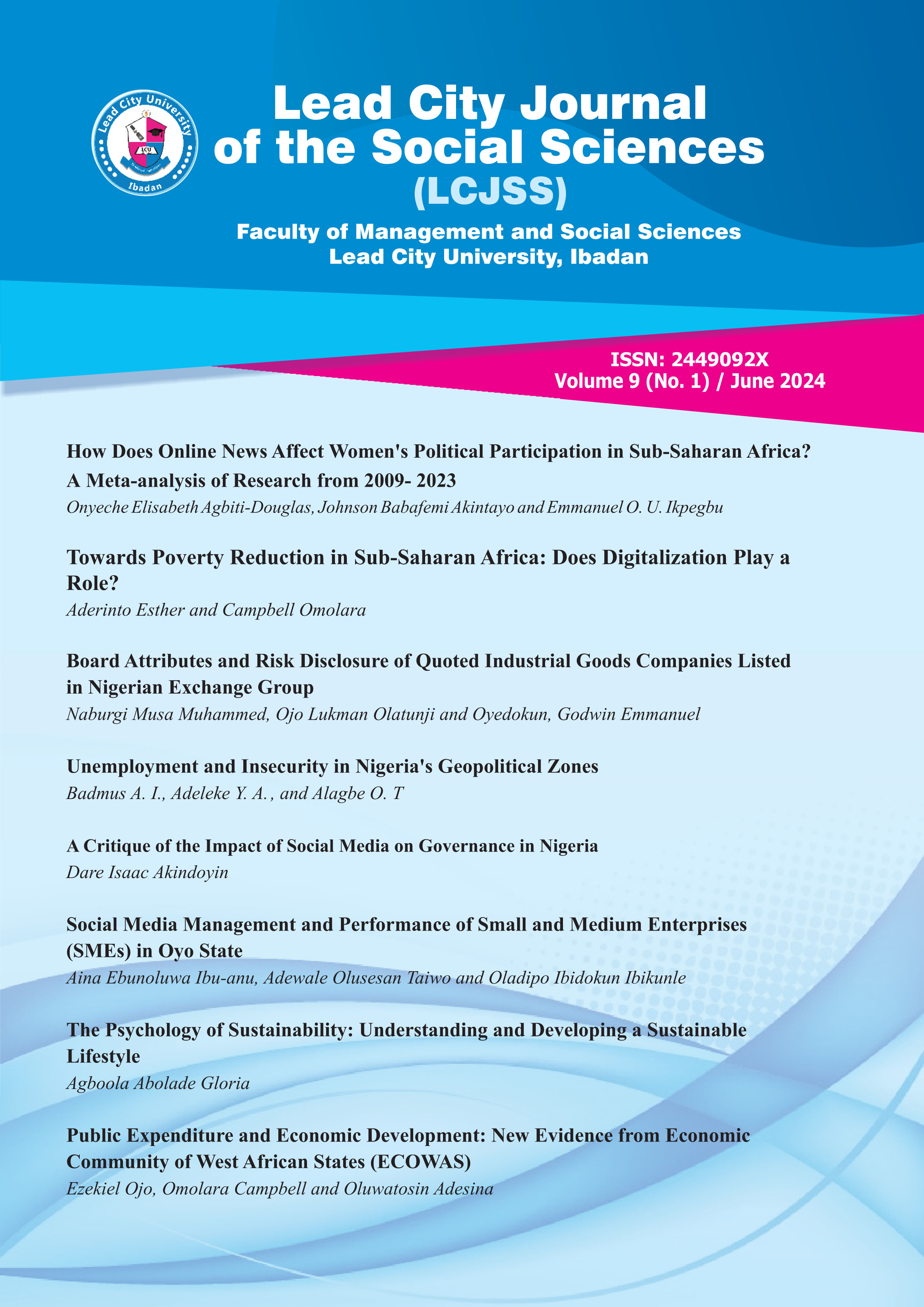Public Expenditure and Economic Development: New Evidence from Economic Community of West African States (ECOWAS)
Keywords:
Public Expenditure, Economic Development, ECOWASAbstract
This study empirically investigates the relationship between public expenditure and economic
development in the Economic Community of West African States (ECOWAS) countries. It employs
panel data analysis to investigate the relationship between public expenditure and economic
development in thirteen (13) ECOWAS countries based on data availability. The analysis is based on
relevant data from World Development Indicators (WDI) spanning from 1990 to 2021. The study
employs descriptive and quantitative analysis, with the Human Development Index (HDI) serving as
proxy for economic development. In accomplishing the primary objective of this study, Autoregressive
Distributed Lag (ARDL) and Fully Modified Ordinary Least Squared (FMOLS) techniques were
employed, using the latter technique for robustness of the results. The regression analysis reveal that
there is a long run but insignificant relationship between public expenditure and economic
development in ECOWAS countries for the period under review. The study concludes that public
expenditure has not been utilized optimally for economic development in these countries. The study thus, recommends as a matter of urgency, plethora of policies to make ECOWAS countries develop
economically from its present status of the least developed region globally. Such recommendations
include sound monetary and fiscal policy, increased government expenditure on education, increase in
primary school enrolment, increase in labour force participation that will enhance increase in
employment generation and diversification of economy from natural resources (e.g crude oil, gold,
uranium) to other viable sectors of the economy, thereby resulting in rapid economic development in
the region.

